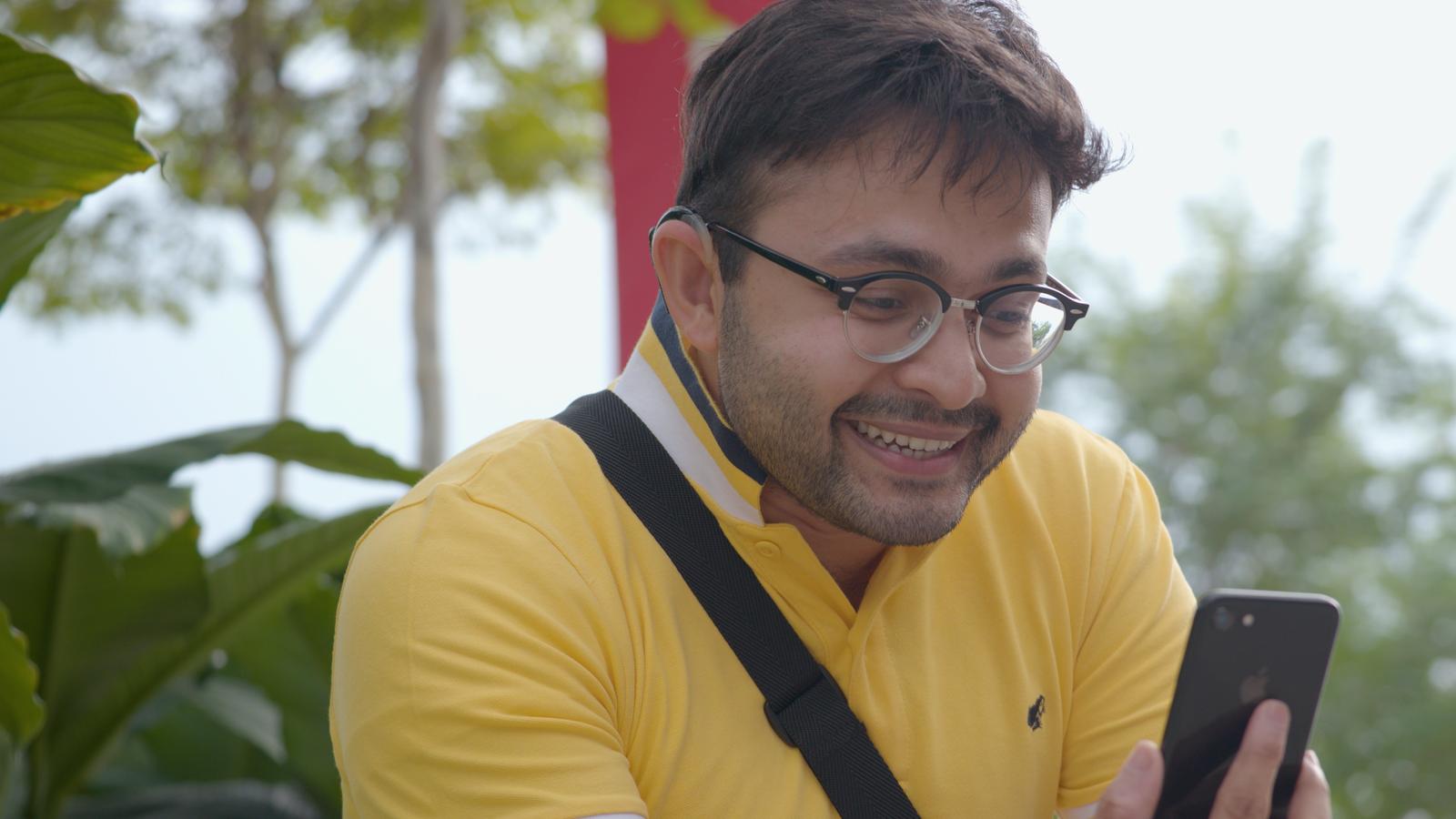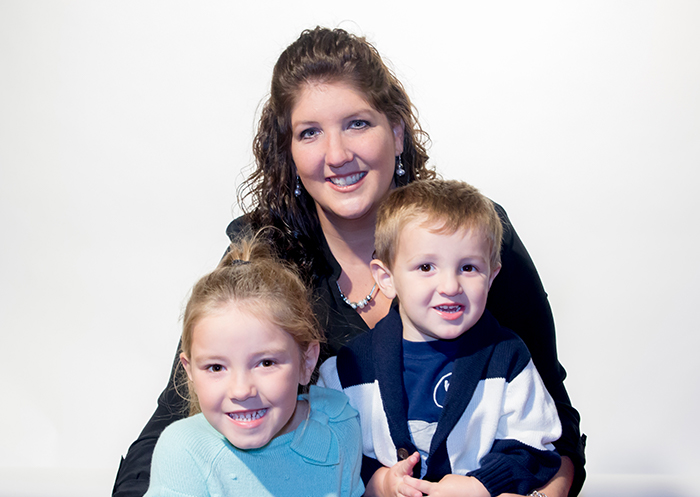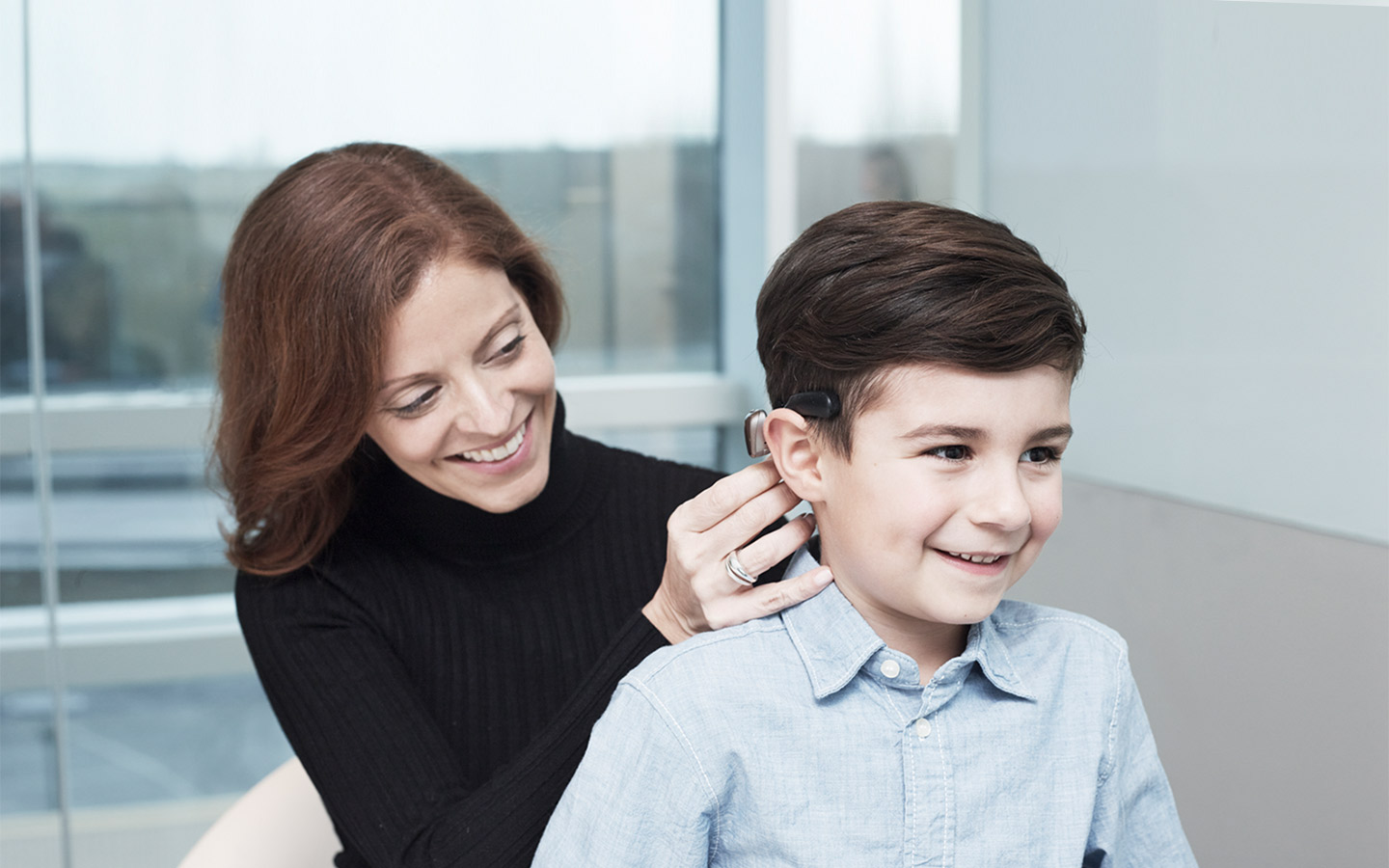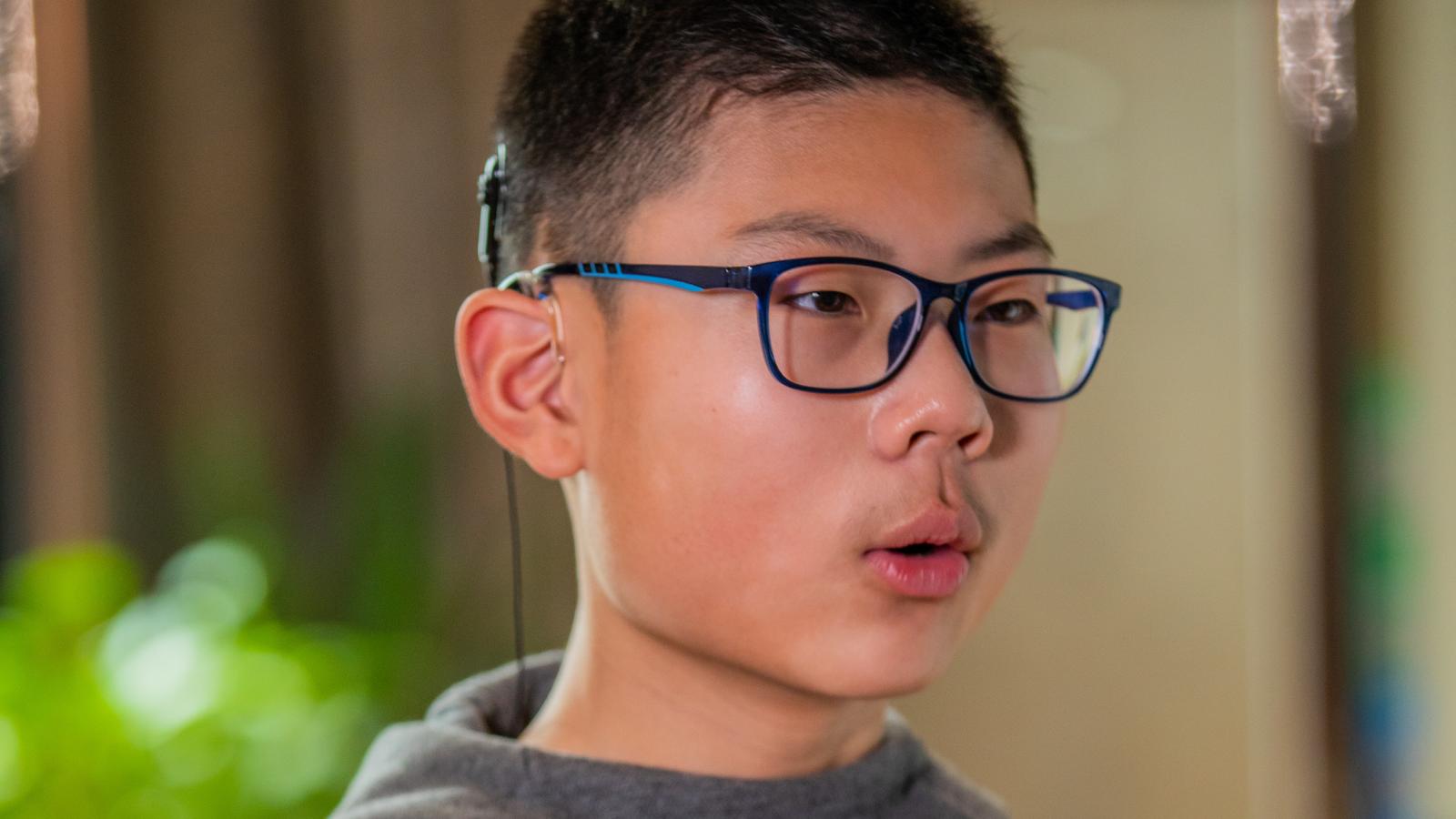Your child's bone conduction implant surgery
Learn about your child’s recovery from bone conduction implant surgery so they can be ready for their sound processor fitting.

What you'll find on this page
- Tips on caring for your child after surgery.
- When your child can return to school and activities.
- How long it may take to recover.
40 years and counting
Deciding on surgery is difficult for parents, especially when children are young. You worry if the procedure will go well. Afterwards, you're concerned your child may be in pain or discomfort.
It's normal to feel anxious, but you're not alone.
Surgeons have performed bone conduction procedures for more than 40 years.
Understanding what to expect after surgery and how to care for your child will help you manage your own feelings as well as theirs.
"After the surgery, we actually went home that day. We were home by noon. And by three o'clock we were having to remind her to stop jumping around, you just had surgery!"
- Melissa W, mother of Cochlear™ bone conduction recipient Isabella
After your child's procedure
After bone conduction implant surgery for the Baha Attract System, your child’s head will be wrapped in a bandage to protect the incision behind the ear.
Your child will likely have a bandage after surgery for a day or two. You will be given instructions on how to care for the implant site after the bandage is removed.
When the bandage is removed, there may be some swelling around the incision. Once it heals and the swelling disappears, your child may have a slightly raised bump where surgeons have placed the implant. This area is typically covered by hair.
Generally, there is no bandage after bone conduction surgery for the Baha Connect System. To protect the abutment for the Baha Connect System, surgeons sometimes use a small non-stick dressing.
It's important to follow your doctor's instructions regarding rest and recovery during this time.
How to care for your child after bone conduction implant surgery
This post-surgery period is a time for rest.
Here are some tips to help your child get better.
- Follow your doctor's instructions and make sure your child takes medication exactly as directed.
- Your child may want to spend the first few days in bed.
- Encourage quiet indoor play for the first few days.
- Your child will have a bandage over their incision. Your doctor will let you know when you can remove the bandage.
- Follow-up care is an important part of your child's treatment. Make sure you attend all appointments and call your doctor if your child is having any problems.
With switch-on fast approaching, take this opportunity to help your child get ready for the upcoming visits to their hearing health professional and speech therapist, if necessary.
How long does it take to recover?
The surgeon will set a recovery period before it’s time to activate your child’s implant. This is usually 2-4 weeks for bone conduction implants.
Every child recovers at a different pace. The care they need will vary too, depending on their independence and lifestyle.
Most children can go back to school or daycare one week after surgery. However, it's usually best they don't take part in sports for three to four weeks afterwards.
Talk to your doctor about how much activity is safe for your child.

Disclaimer
Please seek advice from your health professional about treatments for hearing loss. Outcomes may vary, and your health professional will advise you about the factors which could affect your outcome. Always read the instructions for use. Not all products are available in all countries. Please contact your local Cochlear representative for product information.
For a full list of Cochlear’s trademarks, please visit our Terms of Use page.
Views expressed are those of the individual. Consult your health professional to determine if you are a candidate for Cochlear technology.






